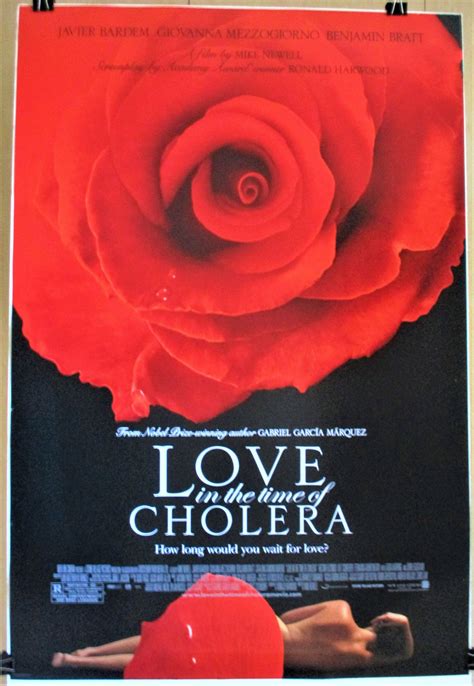Love in the Time of Cholera

Description:
Love in the Time of Cholera is a romantic drama based on the novel by Gabriel García Márquez. Set in Colombia, the film spans over 50 years, following the life of Florentino Ariza and his enduring love for Fermina Daza. Despite their separation by distance and Fermina's marriage to a wealthy doctor, Florentino remains devoted. The movie explores themes of love, passion, and destiny against a backdrop of a changing society and the persistent presence of cholera.Keywords:
Colombian Setting, Romance, Drama, Colombia, Passion, AdaptationWhat is the point of Love in the Time of Cholera?
"Love in the Time of Cholera," based on Gabriel García Márquez's novel, explores the enduring nature of love through the story of Florentino Ariza and Fermina Daza. Set in a Caribbean town, the narrative spans decades, highlighting the complexities of romance, longing, and the passage of time. The film illustrates how love can evolve, survive challenges, and manifest in various forms, while also reflecting on themes like obsession, fidelity, and the intersection of love and mortality. Ultimately, it portrays love as a profound, transformative force in life.
Is Love in the Time of Cholera a good movie?
"Love in the Time of Cholera," directed by Mike Newell and based on Gabriel García Márquez's novel, has received mixed reviews. Critics have praised its lush cinematography and the performances of the lead actors, Javier Bardem and Giovanna Mezzogiorno. However, some viewers felt that the film struggled to capture the depth and nuance of the source material. While it offers a visually rich portrayal of love over decades, opinions on its emotional impact vary. Overall, it may appeal to fans of romantic dramas and Márquez's work.
What does the ending of Love in the Time of Cholera mean?
The ending of "Love in the Time of Cholera" signifies the triumph of love over time and societal conventions. Florentino and Fermina, having lived separate lives, reunite in old age, demonstrating that love can endure and transcend life's challenges. Their decision to embark on a riverboat journey symbolizes a new beginning, embracing the idea that it's never too late for love. The narrative suggests that love is complex and multifaceted, often intertwined with longing, patience, and the passage of time, ultimately celebrating the resilience of human emotions.
Is Love in the Time of Cholera based on a true story?
"Love in the Time of Cholera" is not based on a true story but is a fictional tale written by Colombian author Gabriel García Márquez. The novel, published in 1985, explores themes of love, aging, and the passage of time through the lives of its protagonists, Florentino Ariza and Fermina Daza. While the setting and cultural context are rooted in Latin America, the characters and their experiences are products of Márquez's imagination. The book was later adapted into a film in 2007.
Explore More Categories: